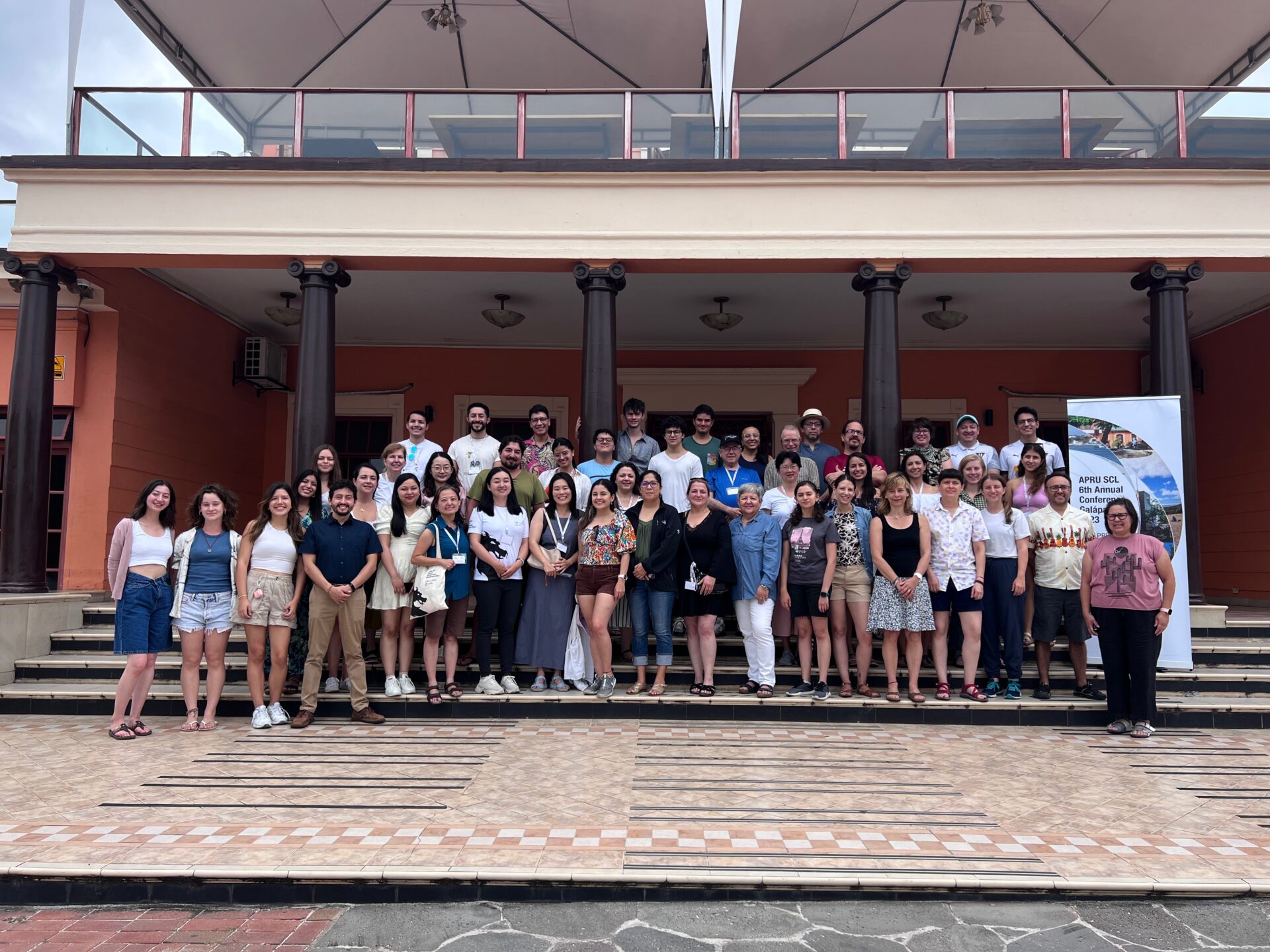Original Post from Universidad San Francisco de Quito
The 6th APRU Sustainable Cities and Landscapes Conference 2023 took place from August 5 to 10 in Quito and San Cristóbal Island of the Galápagos in Ecuador. It was organized by the Universidad San Francisco de Quito (USFQ). The conference has stood out as a milestone in the search for solutions to urban challenges in protected natural areas.
Amid global climate crisis and with urgent need for sustainable change, experts and leaders across the Pacific came together to share knowledge and create action plans. From reflecting on the role of cities for our survival, to exploring approaches to confront the impacts of climate change on urban and natural environments.
“This event brings together experts from around the world to address how urbanization impacts protected areas like the Galapagos, highlighting the importance of balancing urban development with the preservation of the environment. The lessons learned here will be valuable for Pacific islands and states facing similar challenges in the face of climate change and developing urbanization,” said Christina Schönleber, Chief Strategy Officer of the Association of Pacific Rim Universities (APRU).
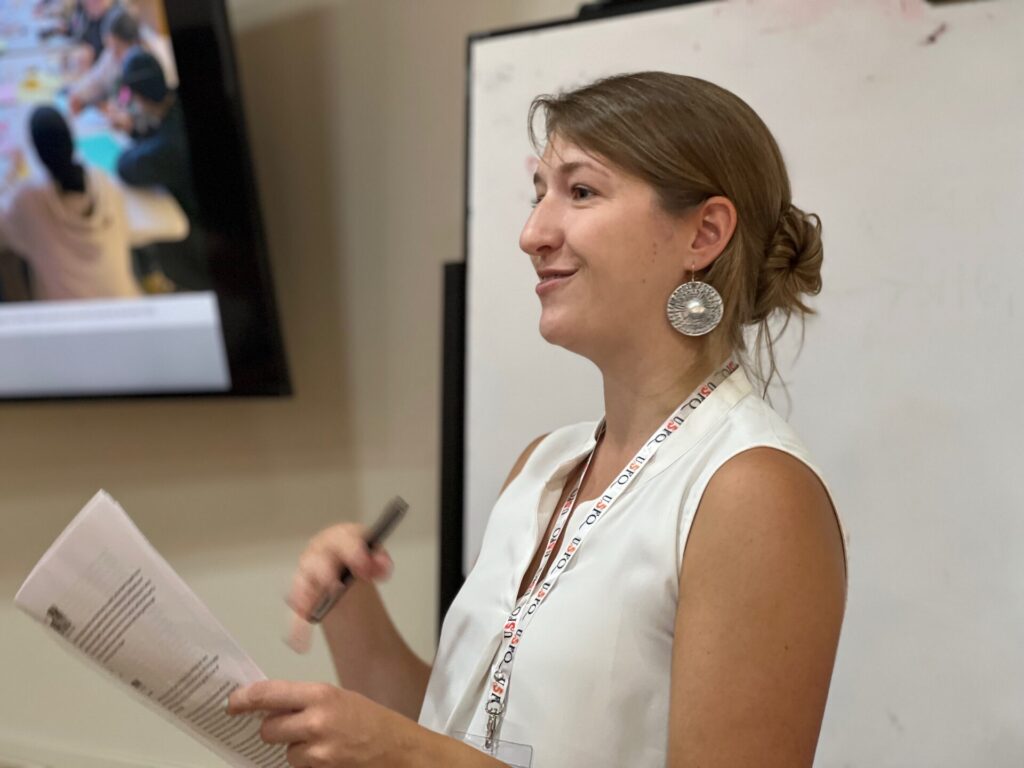
Our Fragile Future
In a world immersed in climate crisis with unpredictable consequences, news about floods, forest fires, droughts and the melting of the polar caps impacts us daily. Species extinction is advancing faster than ever. To ensure our survival, it is essential that humanity goes beyond reducing the exploitation of natural resources and the consumption of fossil fuels. We must look toward an uncertain future and plan contingencies against a range of uncertain scenarios.
The objective of the 6th APRU Sustainable Cities and Landscapes Conference 2023 was to establish a space for dialogue and collaboration between experts and leaders across the Pacific, with the purpose of comprehensively addressing the urban challenges in protected natural areas. Through co-production of knowledge and creation of concrete plans, we sought to move towards sustainability, fostering supportive relationships between cities and their local and regional landscapes.
“We address the creation of sustainable cities and landscapes. Our purpose is to share knowledge to improve urban life and the relationship with nature. Galapagos exemplifies this interaction. We explore four key areas: urban biodiversity, sustainable design, energy efficiency and water management. We believe this approach will not only generate ideas, but also solutions to address climate and environmental challenges,” said John Dunn, Professor at the USFQ College of Architecture and Interior Design, and coordinator of the Institute of Architecture and Urban Form.
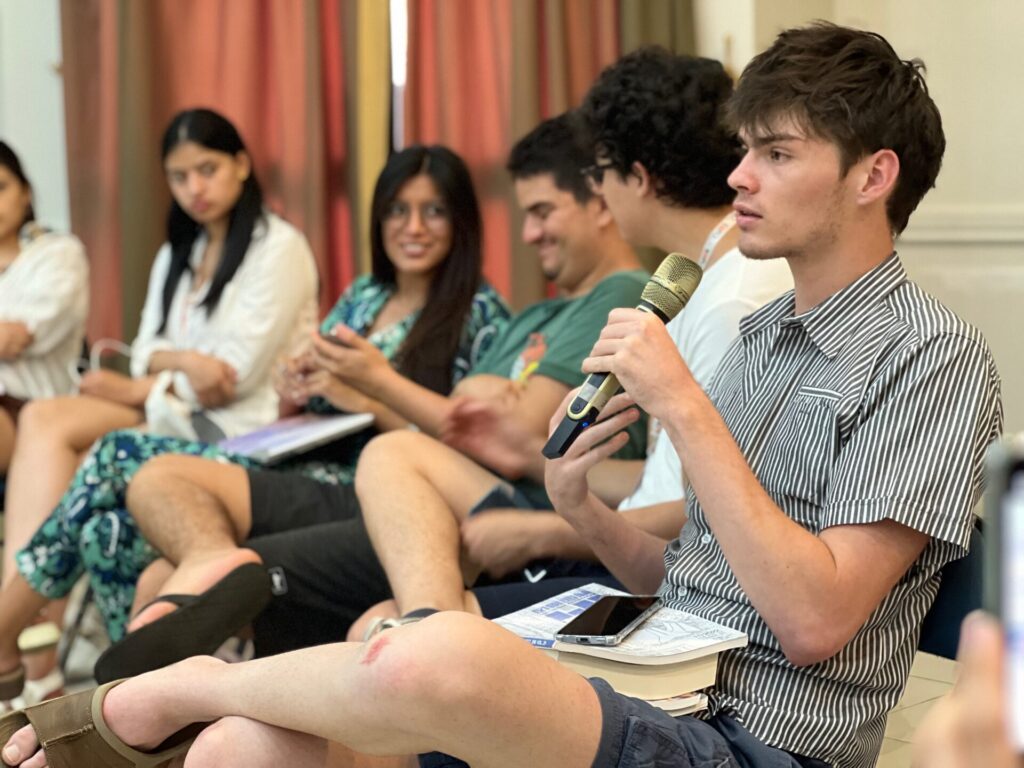
During the conference, speakers addressed a wide range of topics, from biodiversity in urban environments to the transition towards renewable energy sources, exploring how cities can adapt to the changing challenges of the natural environment and climate.
“My work focuses on decarbonizing the built environment. In my presentation I shared my work from the last year, which focused on Morocco. I took a conventional building made of concrete, similar to those found in the Galapagos, and redesigned it using oversized laminated wood. I compared the life cycles of both materials. This experience led me to explore the life cycles of materials and circularity in construction, aspects that I consider crucial to address decarbonization in the Galapagos Islands,” commented Leila Ouazzani, a Master of Architecture candidate at the University of Oregon.
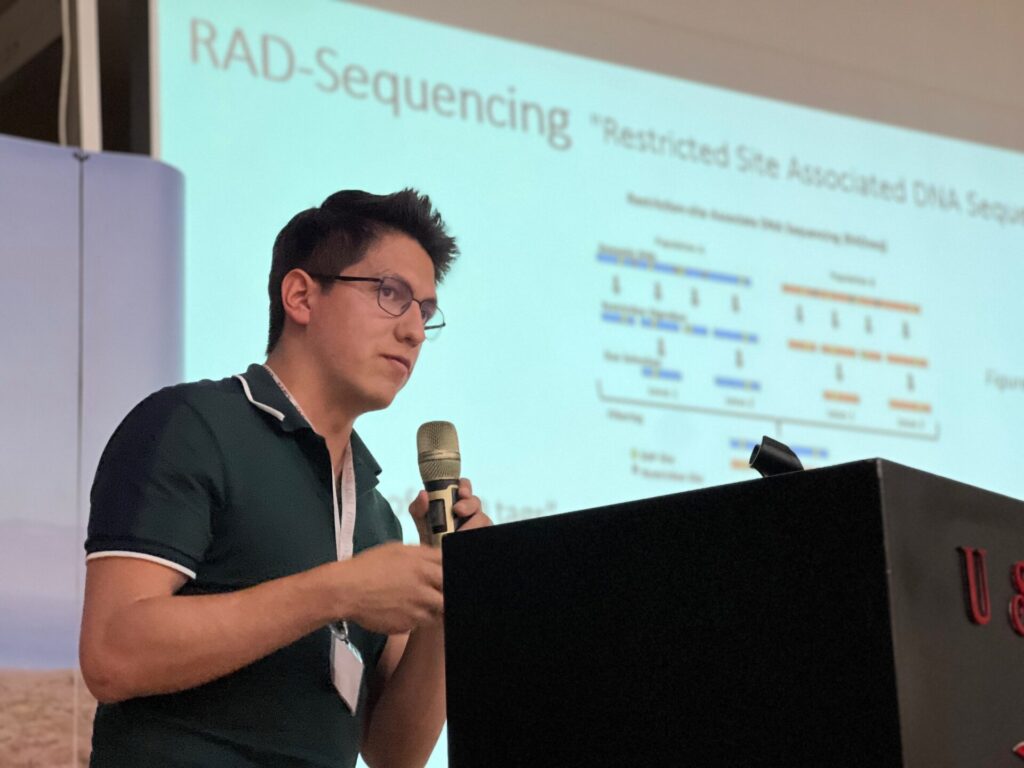
In addition, group work sessions were carried out, in which knowledge was generated and concrete plans were established based on the presentations and discussions. “Participating in the APRU 2023 event was very enriching. I had the opportunity to present on the positive impact of ladybugs in the Galapagos and their applicability in conservation. The event broadened my perspective by connecting biology, architecture, and energy resources, showing diverse solutions to complex problems. The global conversation with participants from all over the world was exciting. I thank the university for this valuable opportunity to discuss issues relevant to society and seek future improvements,” commented Ariel Guerrero, a biology student at USFQ.
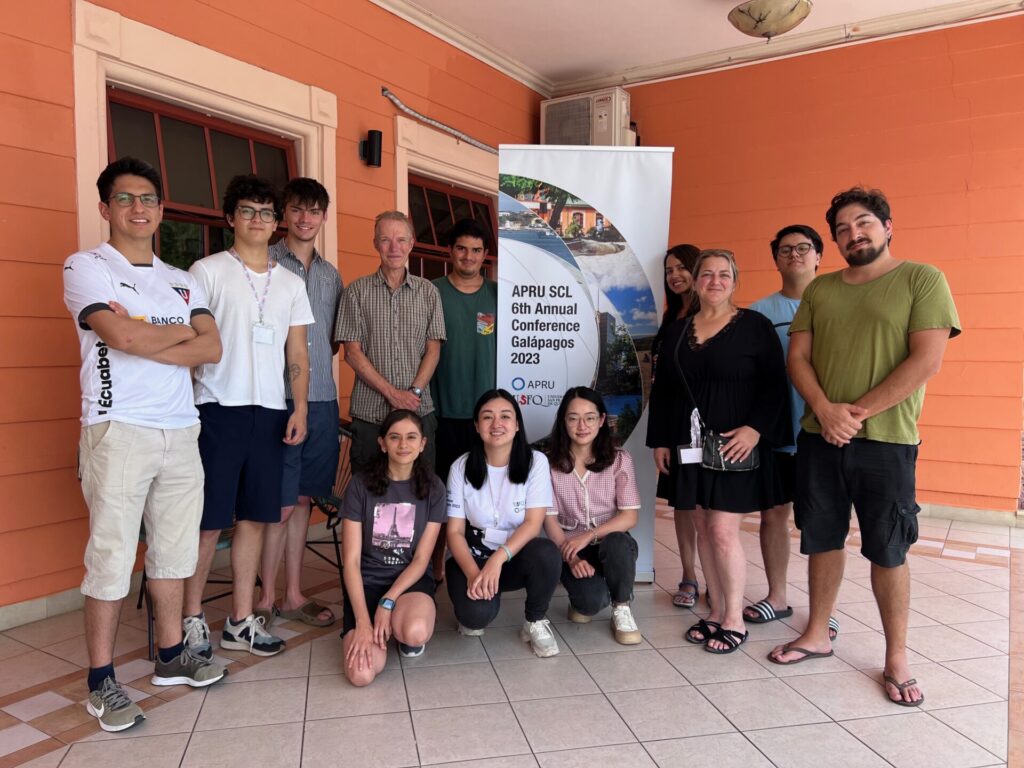
The conference was an invaluable space for collaboration and learning. The contributions of experts, researchers and students have laid the foundation for concrete action, and the preservation of the delicate balance of the Galapagos Islands. This conference was not only a platform for sharing knowledge, but also a step forward in building a more resilient and sustainable world in an era of climate and environmental uncertainty.

